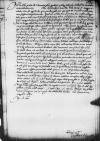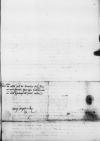Letter #1690
Iustus Lodvicus DECIUS (DECJUSZ, DIETZ) to Ioannes DANTISCUSCracow (Kraków), 1537-08-22
| received [1537]-09-04 Manuscript sources:
Auxiliary sources:
| ||||||||||
Text & apparatus & commentary Plain text Text & commentary Text & apparatus
Reverendissimo in Christo Patri et Domino, domino ⌊Ioanni Dei gratia episcopo Culmensi⌋ etc., domino gratioso et plurimum colendo
Reverendissime in Christo Pater et Domine, domine gratiose plurimumque colende.
Salutem et humilem commendationem.
Non desiderasset tam diu litteras meas, si magnae a reditu curae et aegritudo, quae paulo post me excepit et duriter tractavit, non fuissent impedimento. Quod nunc ab illo sum praeventus, hoc mihi est gratius, quo a tali viro et simili certamine vinci est praeclarius. Minime sera fuit congratulatio, quod iam dudum persuasum habeam, quo in me semper fuerit animo, et longe abest hac in re dubitare, verum oportuit agendo habendoque gratias me priorem fuisse officio. Quo fit, ut deprecandae culpae quam ignoscentiae magis nunc mihi sit opus. Fateor quidem cupivisse, ut longam istam calamitatis meae seriem in illius sinum effundere potuissem, verum quod quaedam non tuta, quaedam levia, ne dicam indigna, essent, omnia in meum illuc reieci adventum, qui iam fuisset, si princeps ille hoc non suscepisset iter, eadem mihi nunc m[e]ns est. Spero enim fore, ut brevi Reverendissimam Dominationem Vestram videam. Utinam auctura fortuna, quam ex animo illi faveo.
Magna, fateor, mea fuit calamitas, sed ita a me accepta, ut numquam abiecerim animum, habiturum Deum innocentiae meae fulcrum. Hoc olim sic fient clara, ut reciderit in auctores malum, quod seminaverunt pessimi homines, quibus nihil est antiquius, quam bonis parare foveam, quae eos ipsos paulo post excipiet. Ego devoco quodam(!) patienter et contemno quaedam fortiter, malignorum temporum colligens rationem. Reliqua consilio expedientur, si vivere dabit Deus. Interea habeo gratiam, qualem nunc possum, Reverendissimae Dominationi Vestrae, quod tam benigniter fortunis meis sit gratulata et futuris necessitatibus amice adfore promittit. Dabo operam, ne illam sui poeniteat beneficii.
Novi nihil scribo, quod
Cupio Reverendissimam Domiantionem Vestram diutissime et feliciter vivere solitaque me prosequi gratia et commendatum habere.
Datae
Reverendissimae Dominationis Vestrae deditissimus servitor

